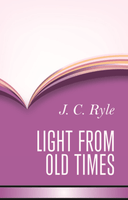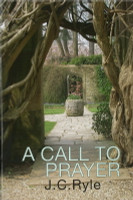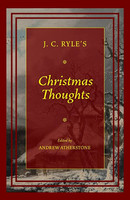
Old Paths (Ryle)
- Affordable shipping (free $100+)
- 100,000+ customers served
- "Wonderful books, great prices, awesome customer service." – Ivan, IL
Description
It was the prophet Jeremiah who first used the expression 'old paths' and assured those who followed them that they would find 'rest for (their) souls' (Jeremiah 6:16).
J.C. Ryle was of the same conviction and wrote: 'The longer I live the more I am convinced that the world needs no new Gospel, as some profess to think. I am thoroughly persuaded that the world needs nothing but bold, full, unflinching teaching of the "old paths"'.
Contents
- Inspiration
- Our Soul
- Few Saved
- Our Hope
- Alive or Dead
- Our Sins
- Forgiveness
- Justification
- The Cross of Christ
- The Holy Ghost
- Having the Spirit
- Conversion
- The Heart
- Christ’s Invitation
- Faith
- Repentance
- Christ’s Power to Save
- Election
- Perseverance
Endorsements
"The Banner of Truth has done us a great service by reprinting this lesser known work of J. C. Ryle. The book is a collection of papers that Ryle put together under the theme of 'Things necessary for salvation.' This means that the nineteen topics discussed are what Ryle would see as core doctrines of the Christian faith. Subjects include inspiration (of the Bible), forgiveness, justification, the cross, the Holy Spirit, having the Spirit, conversion, faith, repentance, election and perseverance. As is usual with Ryle, the book's strong points are simplicity and excellent application."
—Evangelical Times
"This book is highly recommended, especially to those young in the faith. It will help us all to be well established in the great truths of God's Word."
—Evangelical Presbyterian
"Some of the best practical divinity you can read is found within the pages of this lovely and very lively book."
—Reformation and Revival
About the Author
J.C. Ryle (1816-1900) was appointed the first Bishop of Liverpool in 1880 and was the leader of the Evangelical party in the Church of England for more than half a century. He is highly regarded for his plain and lively writings on practical and spiritual themes, and their usefulness and impact have been consistently recognized and remain as wise and relevant today as when he first wrote them.





